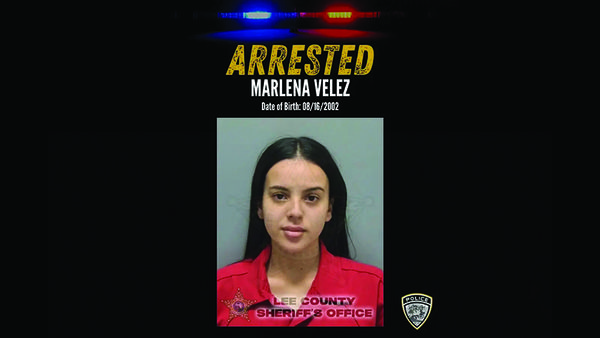
There is a telling moment in 1984 when protagonist Winston Smith questions the overhead birdsong. The sweet taste of black market chocolate is still coating his tongue as he sits in the middle of a wood, at last free from the telescreens that monitor his every move. “For whom, for what, was that bird singing?” he wonders. After all, there are no other birds nearby – nor, for once, are there any microphones listening in. “What made it sit at the edge of the lonely wood and pour its music into nothingness?”
Or to put it another way: “pics or it didn’t happen”. In George Orwell’s epochal dystopian novel, a third of the world lives under the watchful eye of the totalitarian leader Big Brother, and Winston can only dream of a life free of omnipresent surveillance. Today, not only does it seem passé to care about how often you’re caught on CCTV, we actually seemingly invite and enjoy surveillance with our camera doorbells, smart speakers, and constant vertical videoing. The internet mantra “pics or it didn’t happen” summarises our modern belief that everything must be documented to make things worthwhile.
Much has been made of the ways in which the novel was a prescient warning about privacy, yet 1984 isn’t simply about the cameras pointed towards us – it also explores how constant surveillance can seep inside our heads, changing our behaviour and even our thoughts. The citizens who live under watch in 1984 learn to control their thoughts, actions, facial expressions, even their breathing, with techniques that range from “crimestop” (“the faculty of stopping short, as though by instinct, at the threshold of any dangerous thought”) to “doublethink” (“to know and not to know, to be conscious of complete truthfulness while telling carefully constructed lies”). Does that not sound remarkably similar to the way we censor ourselves on social media? The way we offer ourselves up for surveillance in return for praise?
In early February, Venezuelan actor and influencer Ana Wolfermann said “enough”. In a TikTok video with more than 1.5m views, the 22-year-old revealed that she had decided against being a full-time influencer. “I’m tired of making everything about myself,” Wolfermann said. “When I’m out with my friends or when I go get coffee or when I go do anything with my life, I have to take time out of my day to take a picture of me or to take a video of me.”
More troublingly, Wolfermann said that performing for the camera has actually changed the way she speaks.
1984 famously features “Newspeak”, the state’s condensed official vocabulary which limits a person’s ability to tackle complicated concepts and cuts “language down to the bone”. In Wolfermann’s video, she said: “On TikTok, you have to talk in short sentences. I’ve had to learn to not elaborate on my ideas.” Like citizens living under Big Brother, netizens have taught themselves to self-censor to please all-seeing algorithms. In 1984’s Newspeak, “doubleplusgood” refers to something excellent; “ungood” has replaced the word “bad”. On TikTok, people fear that using controversial words will get their videos banned from the app – as a result, “suicide” and “death” have been replaced by the euphemistic “unalive”.
As a journalist who often writes about internet culture, I have met many people who respond to today’s surveillance society by being either performative or self-censoring. I have spoken with vloggers who film their children’s entire lives for content, and I’ve heard from mental health advocates who fear using the words “depression” and “self-harm” on TikTok. I’ve met influencers who lament commodifying their friendships for clicks, even admitting: “My whole life became dedicated to trying to make something worth watching.”
And what of the audience – what about the fact that we all enjoy playing Big Brother? In the autumn of 2021, an American student was nicknamed “couch guy” by the internet after his long-distance girlfriend filmed herself surprising him with a visit. TikTok commenters decided that he looked insufficiently enthusiastic when she arrived and accused him of infidelity because he was sitting next to other girls on his couch. The audience thought they could see inside his head, accusing him of psychopathy, and analysing the angle of his knees to determine that he was “disinterested” – in a manner not dissimilar from 1984’s Thought Police.
This feels remarkably similar to Winston’s experiences of “facecrime” – the act of letting your face betray your thoughts in public with, for instance, a nervous tic or an anxious or incredulous look that can be easily detected by the ubiquitous telescreens. Played by Andrew Garfield in Audible’s new dramatisation, the actor’s performance draws out the tension and panic of these moments, while also imbuing them with a kind of nervous humour.
Alongside Garfield, Cynthia Eviro in the role of Julia shows us the art of hiding one’s true self in a world where everyone’s emotions and thoughts are inferred from such signs as a flicker of the eye or a raised heartbeat under the all-seeing eyes of Big Brother – voiced by Tom Hardy. In the ominous words of high-ranking Party official O’Brien, played with dark and devastating panache by Andrew Scott: “It is necessary for us to know everything.”
This pervasive sense of being watched rings all too familiar in today’s age of big data. Even if we opt out of being influencers and decide to not to video ourselves at brunch, we run the risk of being observed and scrutinised like Winston – and the student who was dubbed “couch guy”. Writing about the toll taken by the incident, the student stressed that he had “no previous desire for internet fame, let alone infamy”. But today, strangers record anyone and everyone with little or no concern for the thorny issue of consent. Creators set up “honesty tests” where they drop cash in front of strangers, and record them to see if they give the money back. So-called #kindness videos show influencers offering unwitting strangers flowers – audiences have their hearts warmed, but the people featured in these videos often complain about being dehumanised. People who don’t come across well in surprise videos like this are often hounded in comment sections – accused of being abusive, racist, sexist, criminal or mentally unwell on the basis of a facial expression in a 10-second clip.
We all know how we got here – when, at the turn of the millennium, Big Brother stopped being a totalitarian concept and instead became an entertaining reality TV format. Today, we accept facial recognition technology for our “safety”, and allow our digital data to be mined and sold for the convenience of using our favourite apps. Peter Fussey, a professor of sociology at the University of Essex, started studying surveillance when he wrote his PhD on CCTV cameras in 1998. He was struck by the question: “Why wasn’t there more resistance?”
Fussey says the argument that those with “nothing to hide” have “nothing to fear” has been prevalent for decades. And everyone, he says, seems prepared to compromise privacy for convenience – even he sometimes turns off his VPN if pages online load too slowly. And yet we mustn’t blame each other for the surveillance that big tech companies and governments benefit from normalising. Fussey, who is a director of the Centre for Research into Information, Surveillance and Privacy, says we can’t “meaningfully consent” to online terms and conditions that “would take months of your life every year to read”.
Silkie Carlo, the director of civil liberties group Big Brother Watch, concurs that we must scrutinise the powerful more than the public. “If you were to say no to data collection at every turn, even for a day let alone a week, your life would be very different,” she says. “Denying your data being collected in many of these cases is nigh on impossible.” And, she adds, even “oversharing on social media” is less of an individual choice than it seems: “The design of platforms do lend themselves to this kind of narcissism.” She recalls being troubled when the “Like” button was first introduced on Facebook in 2009. “I don’t think it’s a healthy setup for a social platform to have,” she says. “In normal offline social life, you don’t immediately tell somebody whether you approve of them or not, let alone have an anonymous, population-level audience tell you whether they do or not.”
Carlo worries that people, especially children, feel pressure to perform for these platforms. She is concerned about the conformity that social media encourages, “the fact that when people feel watched – watched by the state or their peers – they are motivated to conform to what seems to be the norm”.
1984’s insights into how people end up internalising surveillance helps make Orwell’s work so prescient. Even if the surveillance apparatus changes – the tools, the language, the gadgets, the devices – people’s all too human responses remain telling. While the novel has long shown us that we need to resist the forces and institutions that seek to compromise our privacy, it also stresses the importance of freeing our minds – of resisting not just excessive surveillance, but also the soul-destroying self-censorship and social policing that accompanies it.
Audible’s new dramatisation of George Orwell’s classic tale stars Andrew Garfield, Cynthia Erivo, Andrew Scott and Tom Hardy, with an original score by Matthew Bellamy and Ilan Eshkeri. Listen now. Subscription required. See audible.co.uk for terms.
Audible and the Audible logo are trademarks of Audible, Inc or its affiliates







